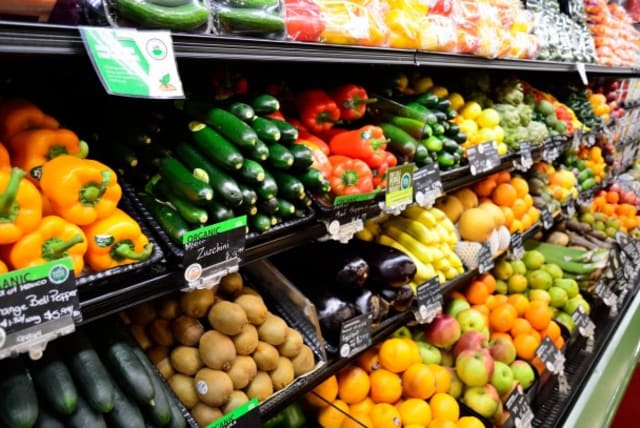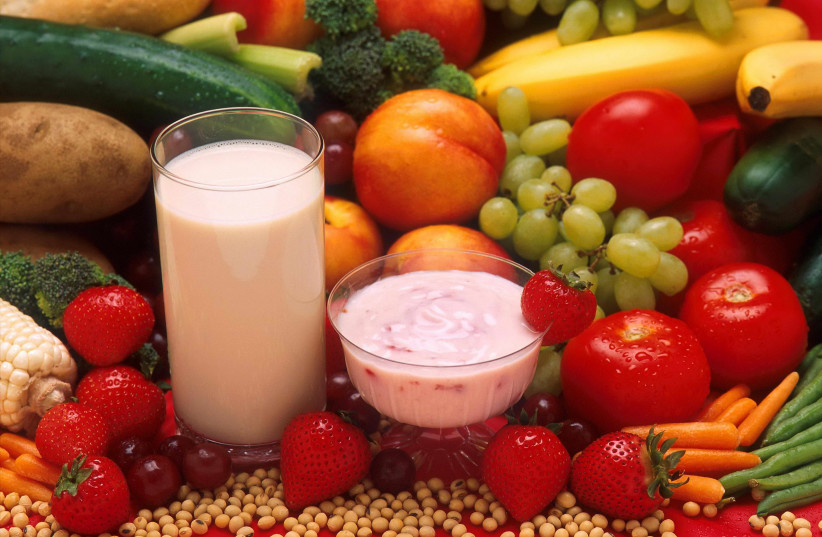These are the most and least contaminated fruits, vegetables of 2023

Every year a guide is published in the US which lists the fruits and vegetables which are heavily contaminated with pesticides.
Blueberries, beloved by nutritionists for their anti-inflammatory properties, joined green beans that are rich in dietary fiber on the Dirty Dozen list of non-organic agricultural produce with the most pesticides, according to the Environmental Working Group, a non-profit environmental health organization that publishes a report on this subject every year.
In the 2023 Shopper's Guide to Pesticides in Produce, researchers analyzed test data on 46,569 samples of 46 fruits and vegetables performed by the USDA. Each year, a changing list of produce is checked by USDA workers who wash, peel or scrub fruits and vegetables as consumers would before eating them. These items were reviewed for 251 different pesticides.
A total of 210 pesticides were found on 12 foods, the report said. Cabbage, collard greens and mustard contained the largest number of different pesticides, 103, followed by peppers and hot peppers with 101.
The report stated that some of the Department of Agriculture's tests show traces of pesticides long banned by the Environmental Protection Agency. Much stricter federal regulation and oversight of these chemicals is needed.
The dirty dozen include:
- Apples
- Blueberries
- Cherries
- Grapes
- Green beans
- Kale
- Collard and mustard leaves
- Nectarines
- Peaches
- Pears
- Red peppers and hot peppers
- Spinach
- Strawberries
Yet there's good news. Concerned consumers may consider choosing conventionally grown vegetables and fruits from the EWG's Clean 15 list of crops found to contain the lowest amount of pesticides, the report states.
Another important and gratifying detail is that almost 65% of the items listed had no detectable levels of pesticides.
Avocado once again topped the list of the least polluted produce of the year followed by sweet corn in second place.
The clean 15 include:
- Asparagus
- Avocado
- Cabbage
- Carrots
- Frozen sweet peas
- Honeydew
- Kiwi
- Mango
- Mushrooms
- Onion
- Papaya
- Pineapple
- Sweet corn
- Sweet potato
- Watermelon
The American Academy of Pediatrics has highlighted the dangers of exposure to pesticides during pregnancy in the past.
"Exposure during pregnancy may lead to an increased risk of birth defects, low birth weight and fetal death," they said in a study conducted in 2012.
Exposure in childhood has been linked to attention and learning problems, as well as cancer.
Jerusalem Post Store
`; document.getElementById("linkPremium").innerHTML = cont; var divWithLink = document.getElementById("premium-link"); if (divWithLink !== null && divWithLink !== 'undefined') { divWithLink.style.border = "solid 1px #cb0f3e"; divWithLink.style.textAlign = "center"; divWithLink.style.marginBottom = "15px"; divWithLink.style.marginTop = "15px"; divWithLink.style.width = "100%"; divWithLink.style.backgroundColor = "#122952"; divWithLink.style.color = "#ffffff"; divWithLink.style.lineHeight = "1.5"; } } (function (v, i) { });

